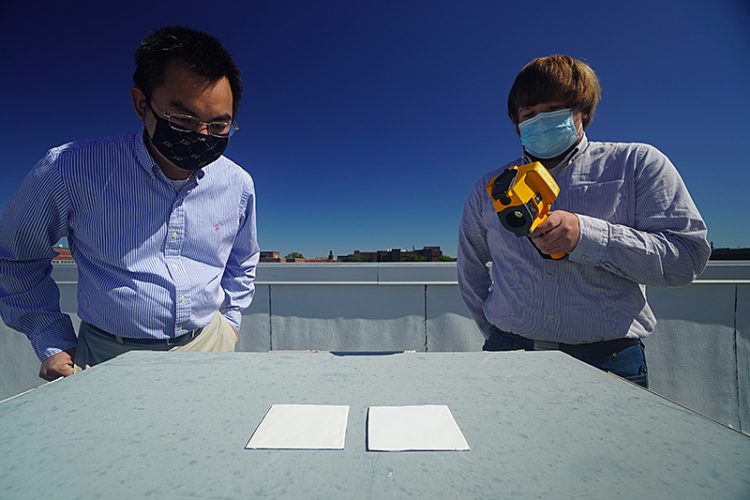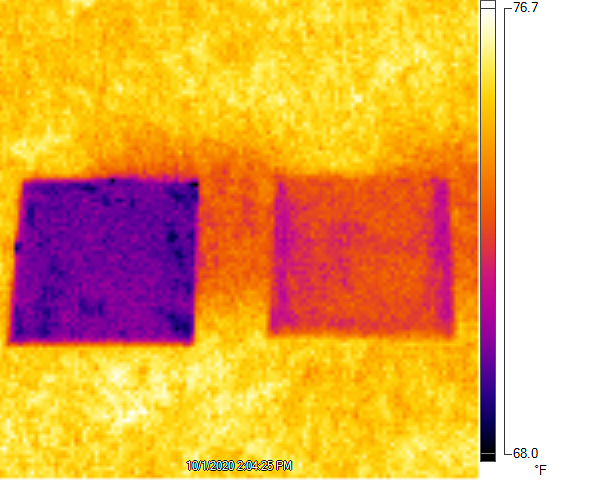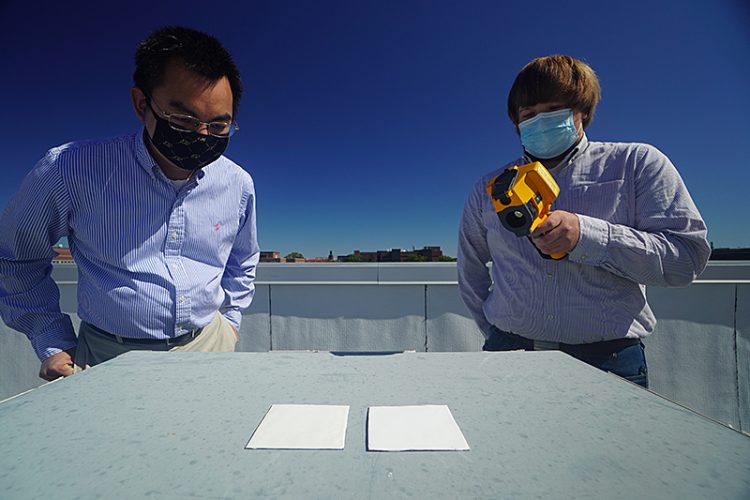The idea that a simple paint could could compete with modern air-conditioning sounds crazy, but researchers at Purdue University say it could become a reality thanks to a cool new “radiative cooling paint” they developed.
Engineers at Purdue University recently unveiled a revolutionary white paint that they claim can keep surfaces up to 18 degrees Fahrenheit (7.8 degrees Celsius) cooler than their ambient temperature, by absorbing almost no solar energy and actually sending heat away from the surface it is covering. Think of it as a way of turning basically any space into a refrigerator, only without the energy cost.

Purdue University photo/Jared Pike
“It’s very counterintuitive for a surface in direct sunlight to be cooler than the temperature your local weather station reports for that area, but we’ve shown this to be possible,” Xiulin Ruan, a professor at Purdue, said.
According to researchers, commercially available white paint can reflect just 80%-90% of sunlight and cannot achieve temperatures below their surroundings, while this new reflective white paint reflects 95.5% sunlight and radiates infrared heat much more efficiently.
An article on the Purdue University website reveals that attempts to create a reflective paint as a feasible alternative to traditional air conditioners can be traced back to the 1970s, which speaks to how difficult finding the right formula actually was. It took Purdue’s engineers six years of hard work and lots of trial and error to come up with a white paint based on calcium carbonate, an earth-abundant compound, that actually worked.

Purdue University photo/Jared Pike
“Your air conditioning kicks on mainly due to sunlight heating up the roof and walls and making the inside of your house feel warmer. This paint is basically creating free air conditioning by reflecting that sunlight and offsetting those heat gains from inside your house,” Joseph Peoples, a Purdue Ph.D. student in mechanical engineering and a co-author of the research, said.
But what happens to that heat that gets reflected off the surface covered in reflective white paint? Does it go into the atmosphere? Apparently not, as the paint is reflected from Earth into deep space, where heat travels indefinitely at the speed of light.
“We’re not moving heat from the surface to the atmosphere. We’re just dumping it all out into the universe, which is an infinite heat sink,” said Xiangyu Li, a postdoctoral researcher at MIT who worked on the new paint. That means that should the paint be used on large surfaces around the world, like roads, rooftops and cars, it could actually help prevent global warming.
Purdue researchers estimate that the reflective white paint would be both cheaper to produce than commercial white paint, and also save people about a dollar a day on air-conditioning use for a one-story house of approximately 1,076 square feet.
Engineers are now working on other paint colors that could have cooling benefits, although white will probably remains the most efficient, due to its natural light reflecting properties. It’s basically the opposite of Vantablack, the world’s blackest black, capable of absorbing 99.96 percent of light that hits it.













